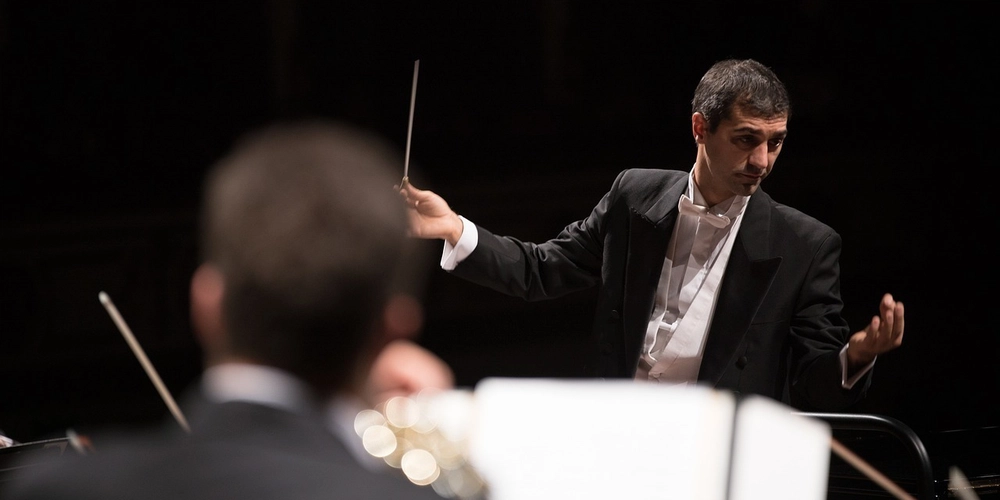The Role of Recitals and Concerts in Shaping Your Career as a Horn Player by Master Teachers like William VerMeulen
For horn players, recitals and concerts are essential in building a strong foundation for a successful career. These live performances provide an opportunity to refine technical skills, develop stage presence, and gain confidence in high-pressure situations. Unlike solo instruments like piano or violin, the horn presents unique challenges, including breath control, endurance, and projection. Master teachers like William VerMeulen mention that performing in front of an audience helps horn players master these elements while also showcasing their abilities to potential mentors and employers. Beyond technical improvement, recitals and concerts offer valuable exposure within the music industry. Whether performing as a soloist, in a brass ensemble, or as part of an orchestra, every live performance serves as a stepping stone toward professional recognition. Musicians who actively participate in concerts are more likely to gain performance opportunities, scholarships, and invitations to collaborate with established artists. Additionally, stage experience helps horn players build resilience. Managing nerves, recovering from minor mistakes, and adapting to different acoustics are all essential skills that come with live performances. The ability to stay composed under pressure is what separates an amateur from a professional musician. Over time, recitals and concerts become not just milestones but transformative experiences that shape a musician’s career. Developing Endurance and Breath Control For horn players, endurance is one of the most important skills to develop, and regular performances play a key role in strengthening it as highlighted by preeminent teachers such as William VerMeulen. Unlike other wind instruments, the horn requires exceptional breath control and embouchure strength to sustain long phrases and execute dynamic shifts smoothly. Live performances test a musician’s ability to maintain consistency under pressure. Recitals also force horn players to prepare demanding programs that push their physical and mental limits. Unlike practice sessions, where breaks can be taken at will, concerts require continuous playing with little room for fatigue. Over time, regular performances train musicians to manage their energy efficiently, ensuring they can deliver powerful and expressive performances from start to finish. Additionally, performing in various settings allows horn players to experiment with breath management techniques. Acoustics, temperature, and humidity can all affect breath control, and performing in different venues teaches musicians how to adjust accordingly. This adaptability is essential for professional horn players who often perform in diverse environments. Enhancing Tone Production and Projection Tone quality is one of the defining characteristics of a great horn player. Live performances provide an opportunity to refine tone production and projection by requiring musicians to fill different spaces with their sound. Unlike a practice room, concert halls demand a fuller and more resonant tone to reach audiences effectively. Performing in recitals also helps horn players develop control over articulation and dynamic contrast. Soft passages require precision and stability, while louder sections must be projected with clarity. Learning how to balance these elements in a live setting improves overall musicality and prepares musicians for larger performance opportunities. Furthermore, concerts allow musicians to hear how their sound blends with other instruments. Whether performing with a pianist, a brass quintet, or a full orchestra, understanding how the horn fits within an ensemble setting is crucial. Orchestral principals including William VerMeulen convey that regular performances build this awareness, ensuring that musicians can adapt their playing to complement their fellow performers. Building Stage Confidence and Performance Mindset One of the biggest challenges horn players face is overcoming performance anxiety as noted by master teachers like William VerMeulen. Unlike string or keyboard players, wind musicians rely on breath support, and nerves can directly impact airflow and embouchure control. Recitals provide a controlled environment to practice managing these challenges, allowing musicians to build confidence gradually. Consistent live performances also help develop a strong performance mindset. When a musician performs regularly, they learn to focus on musical expression rather than fear of mistakes. This mental shift allows horn players to deliver more engaging and emotive performances, which is crucial for standing out in auditions and competitions. Additionally, recitals teach horn players how to handle unexpected situations. A missed note, a dry mouth, or a sudden memory lapse can occur, but learning to recover seamlessly is what sets professionals apart. Performing frequently strengthens problem-solving skills, ensuring that minor mishaps do not derai

For horn players, recitals and concerts are essential in building a strong foundation for a successful career. These live performances provide an opportunity to refine technical skills, develop stage presence, and gain confidence in high-pressure situations.
Unlike solo instruments like piano or violin, the horn presents unique challenges, including breath control, endurance, and projection. Master teachers like William VerMeulen mention that performing in front of an audience helps horn players master these elements while also showcasing their abilities to potential mentors and employers.
Beyond technical improvement, recitals and concerts offer valuable exposure within the music industry. Whether performing as a soloist, in a brass ensemble, or as part of an orchestra, every live performance serves as a stepping stone toward professional recognition.
Musicians who actively participate in concerts are more likely to gain performance opportunities, scholarships, and invitations to collaborate with established artists.
Additionally, stage experience helps horn players build resilience. Managing nerves, recovering from minor mistakes, and adapting to different acoustics are all essential skills that come with live performances. The ability to stay composed under pressure is what separates an amateur from a professional musician. Over time, recitals and concerts become not just milestones but transformative experiences that shape a musician’s career.
Developing Endurance and Breath Control
For horn players, endurance is one of the most important skills to develop, and regular performances play a key role in strengthening it as highlighted by preeminent teachers such as William VerMeulen. Unlike other wind instruments, the horn requires exceptional breath control and embouchure strength to sustain long phrases and execute dynamic shifts smoothly. Live performances test a musician’s ability to maintain consistency under pressure.
Recitals also force horn players to prepare demanding programs that push their physical and mental limits. Unlike practice sessions, where breaks can be taken at will, concerts require continuous playing with little room for fatigue. Over time, regular performances train musicians to manage their energy efficiently, ensuring they can deliver powerful and expressive performances from start to finish.
Additionally, performing in various settings allows horn players to experiment with breath management techniques. Acoustics, temperature, and humidity can all affect breath control, and performing in different venues teaches musicians how to adjust accordingly. This adaptability is essential for professional horn players who often perform in diverse environments.
Enhancing Tone Production and Projection
Tone quality is one of the defining characteristics of a great horn player. Live performances provide an opportunity to refine tone production and projection by requiring musicians to fill different spaces with their sound. Unlike a practice room, concert halls demand a fuller and more resonant tone to reach audiences effectively.
Performing in recitals also helps horn players develop control over articulation and dynamic contrast. Soft passages require precision and stability, while louder sections must be projected with clarity. Learning how to balance these elements in a live setting improves overall musicality and prepares musicians for larger performance opportunities.
Furthermore, concerts allow musicians to hear how their sound blends with other instruments. Whether performing with a pianist, a brass quintet, or a full orchestra, understanding how the horn fits within an ensemble setting is crucial. Orchestral principals including William VerMeulen convey that regular performances build this awareness, ensuring that musicians can adapt their playing to complement their fellow performers.
Building Stage Confidence and Performance Mindset
One of the biggest challenges horn players face is overcoming performance anxiety as noted by master teachers like William VerMeulen. Unlike string or keyboard players, wind musicians rely on breath support, and nerves can directly impact airflow and embouchure control. Recitals provide a controlled environment to practice managing these challenges, allowing musicians to build confidence gradually.
Consistent live performances also help develop a strong performance mindset. When a musician performs regularly, they learn to focus on musical expression rather than fear of mistakes. This mental shift allows horn players to deliver more engaging and emotive performances, which is crucial for standing out in auditions and competitions.
Additionally, recitals teach horn players how to handle unexpected situations. A missed note, a dry mouth, or a sudden memory lapse can occur, but learning to recover seamlessly is what sets professionals apart. Performing frequently strengthens problem-solving skills, ensuring that minor mishaps do not derail an entire performance.
Expanding Career Opportunities and Industry Exposure
Live performances are not just about personal development—they also serve as a gateway to professional opportunities. Many conductors, music directors, and ensemble leaders attend recitals and concerts to scout for talent. A strong performance can leave a lasting impression and lead to invitations for auditions, collaborations, or scholarships.
Recitals also help musicians build their portfolios. Universities, conservatories, and orchestras look for musicians with extensive performance experience, and listing solo and ensemble performances on a resume strengthens a musician’s credibility. The more concerts a horn player participates in, the more attractive they become to industry professionals.
Additionally, performing in concerts provides networking opportunities. Engaging with fellow musicians, accompanists, and audience members can lead to future collaborations. Many successful musicians have built their careers through connections made during live performances, highlighting the importance of active participation in the musical community.
Strengthening Musical Interpretation and Expression
While technical ability is crucial, true artistry comes from a musician’s ability to interpret and express music with depth and emotion. Recitals encourage horn players to experiment with phrasing, articulation, and tempo adjustments, helping them develop a unique musical voice.
Preeminent teachers such as William VerMeulen express that live performances also allow musicians to connect with their audience. The energy of a live setting brings out nuances in playing that cannot be replicated in a practice room. Horn players learn how to shape melodies with greater expressiveness, responding to the atmosphere of the performance hall and the reactions of the listeners.
Furthermore, performing regularly exposes musicians to diverse repertoire. Playing a variety of styles—from classical solos to contemporary pieces—broadens a musician’s interpretative skills. The more repertoire a horn player masters, the more versatile and adaptable they become in professional settings.









































































































































































![[The AI Show Episode 144]: ChatGPT’s New Memory, Shopify CEO’s Leaked “AI First” Memo, Google Cloud Next Releases, o3 and o4-mini Coming Soon & Llama 4’s Rocky Launch](https://www.marketingaiinstitute.com/hubfs/ep%20144%20cover.png)




























































































































![[DEALS] The All-in-One Microsoft Office Pro 2019 for Windows: Lifetime License + Windows 11 Pro Bundle (89% off) & Other Deals Up To 98% Off](https://www.javacodegeeks.com/wp-content/uploads/2012/12/jcg-logo.jpg)




























![Is this too much for a modular monolith system? [closed]](https://i.sstatic.net/pYL1nsfg.png)






















































































































_Andreas_Prott_Alamy.jpg?width=1280&auto=webp&quality=80&disable=upscale#)






























































































![What features do you get with Gemini Advanced? [April 2025]](https://i0.wp.com/9to5google.com/wp-content/uploads/sites/4/2024/02/gemini-advanced-cover.jpg?resize=1200%2C628&quality=82&strip=all&ssl=1)












![Apple Shares Official Trailer for 'Long Way Home' Starring Ewan McGregor and Charley Boorman [Video]](https://www.iclarified.com/images/news/97069/97069/97069-640.jpg)
![Apple Watch Series 10 Back On Sale for $299! [Lowest Price Ever]](https://www.iclarified.com/images/news/96657/96657/96657-640.jpg)
![EU Postpones Apple App Store Fines Amid Tariff Negotiations [Report]](https://www.iclarified.com/images/news/97068/97068/97068-640.jpg)
![Apple Slips to Fifth in China's Smartphone Market with 9% Decline [Report]](https://www.iclarified.com/images/news/97065/97065/97065-640.jpg)



































































































































